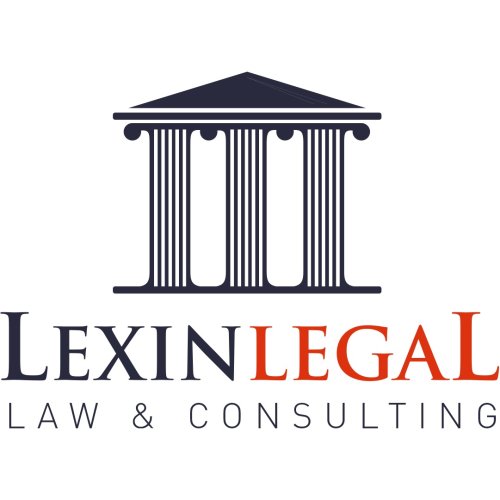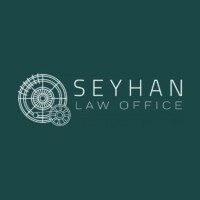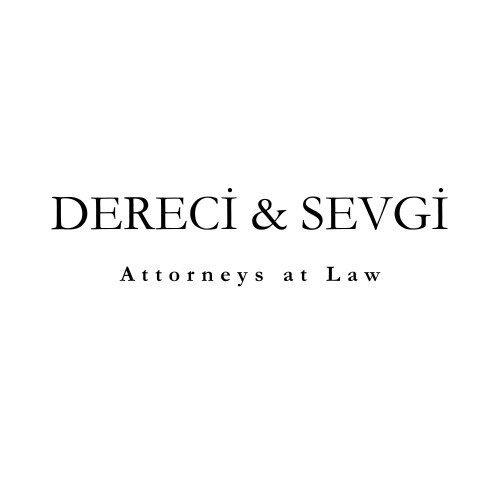Best Mining Law Lawyers in Turkey
Share your needs with us, get contacted by law firms.
Free. Takes 2 min.
Or refine your search by selecting a city:
List of the best lawyers in Turkey
About Mining Law in Turkey
Mining Law in Turkey is a specialized field of law that regulates the exploration, extraction, processing, and commercialization of mineral resources within the country. Governed primarily by the Mining Law No. 3213 and its related regulations, Turkish Mining Law establishes the framework for how mineral rights are allocated, how licenses are obtained, and the responsibilities of mining companies and individuals. The system classifies minerals into different groups and sets procedures for licensing, royalties, environmental protections, and dispute resolution. Due to Turkey's strategic location and rich mineral resources, the mining sector is both heavily regulated and closely monitored by governmental authorities.
Why You May Need a Lawyer
Engaging in mining activities in Turkey involves navigating a complex legal landscape. Individuals and companies often seek legal assistance in situations such as obtaining and transferring mining licenses, ensuring compliance with environmental and occupational safety regulations, handling land expropriation matters, negotiating contracts, and resolving disputes with authorities or other parties. Legal help is also crucial when structuring joint ventures, conducting mergers and acquisitions involving mining assets, and dealing with administrative penalties or revocation of mining rights. A lawyer specializing in Mining Law can help ensure proper compliance, protect your interests, and provide guidance throughout the lifecycle of a mining project.
Local Laws Overview
The main piece of legislation governing mining activities in Turkey is the Mining Law No. 3213, along with secondary legislation and regulations issued by the Ministry of Energy and Natural Resources. Key aspects include the classification of minerals into five groups, requirements for exploration and operation licenses, royalty obligations payable to the state, and detailed environmental and occupational safety standards. The laws outline procedures for license applications, rights and obligations of license holders, transfer of licenses, inspection processes, penalties for non-compliance, and conditions for license cancellation or expiration. Investors must also comply with local land use regulations, zoning, and forestry laws where mining operations intersect with protected or agricultural areas.
Frequently Asked Questions
What is required to obtain a mining license in Turkey?
Applicants must submit a formal application to the General Directorate of Mining and Petroleum Affairs (MAPEG), provide necessary technical documents, maps, and evidence of financial capacity, and pay required fees. The licensing process differs depending on the type and group of mineral.
Are foreign investors allowed to hold mining licenses in Turkey?
Yes, foreign investors can directly hold mining licenses or participate through Turkish-registered companies, subject to the same requirements as domestic entities. Some restrictions may apply near military zones or in areas of national security sensitivity.
How are minerals classified under Turkish Mining Law?
Minerals are classified into five groups, from Group I (such as sand and gravel) to Group V (hydrocarbon and radioactive minerals). Each group has its own legal procedures and corporate requirements.
What environmental obligations must mining operators comply with?
Operators are required to conduct Environmental Impact Assessments (EIA), obtain necessary permits, comply with restoration and reclamation obligations, and adhere to Turkish environmental and waste management regulations.
Can a mining license be transferred or inherited?
Yes, mining licenses can be transferred to other parties with the approval of MAPEG, provided all legal requirements are met. Licenses can also be inherited according to Turkish inheritance law, following official procedures.
What are the royalty and fee obligations for mining activities?
License holders must pay royalties based on the type and amount of extracted mineral, as well as annual license fees. Royalties are calculated as a percentage of the market value and are collected by the state.
Who regulates and inspects mining operations in Turkey?
The Ministry of Energy and Natural Resources, specifically MAPEG, regulates, inspects, and oversees all mining activities. Other agencies may be involved depending on environmental, occupational, or local concerns.
What happens if a mining operator violates the law?
Violations can result in administrative fines, suspension or revocation of licenses, and mandatory corrective actions. In serious cases, criminal liability may also be imposed on responsible individuals or entities.
How can disputes over mining rights be resolved?
Disputes may be addressed through administrative appeals, mediation, or litigation in Turkish courts. In some cases, arbitration clauses in contracts may allow parties to choose alternative dispute resolution mechanisms.
What should I know about community and landowner rights?
Mining activities often require negotiation with landowners for access or usage rights. Compensation, expropriation procedures, or land use permits may be necessary, especially when private or agricultural land is involved.
Additional Resources
- General Directorate of Mining and Petroleum Affairs (MAPEG): Main regulatory agency for mining operations. - Ministry of Energy and Natural Resources: Policy-making body for energy and mining sectors. - Turkish Mining Association: Professional organization providing sector updates and guidance. - Turkish Chamber of Mining Engineers: Technical and professional support for mining projects. - Official Gazette of the Republic of Turkey: Up-to-date laws and regulatory changes. - Local law firms specializing in energy and natural resources law. - Environmental Protection Agency (Ministry of Environment, Urbanization and Climate Change): Guidance on environmental permits and compliance. - Bilateral chambers of commerce for guidance on foreign investment and regulatory compliance.
Next Steps
If you are considering entering the mining sector in Turkey or are facing a legal issue related to mining activities, it is advisable to consult a lawyer specialized in Turkish Mining Law as early as possible. Gather relevant documents such as maps, titles, permits, and correspondences with authorities. Clearly define your goals, timelines, and budget for legal advice. You may contact qualified law firms experienced in Mining Law for an initial consultation. They can assist you with license applications, compliance reviews, contract drafting, dispute resolution, and representation before authorities or in court. Always ensure your legal representative is licensed in Turkey and has proven expertise in mining regulatory matters.
Lawzana helps you find the best lawyers and law firms in Turkey through a curated and pre-screened list of qualified legal professionals. Our platform offers rankings and detailed profiles of attorneys and law firms, allowing you to compare based on practice areas, including Mining Law, experience, and client feedback.
Each profile includes a description of the firm's areas of practice, client reviews, team members and partners, year of establishment, spoken languages, office locations, contact information, social media presence, and any published articles or resources. Most firms on our platform speak English and are experienced in both local and international legal matters.
Get a quote from top-rated law firms in Turkey — quickly, securely, and without unnecessary hassle.
Disclaimer:
The information provided on this page is for general informational purposes only and does not constitute legal advice. While we strive to ensure the accuracy and relevance of the content, legal information may change over time, and interpretations of the law can vary. You should always consult with a qualified legal professional for advice specific to your situation.
We disclaim all liability for actions taken or not taken based on the content of this page. If you believe any information is incorrect or outdated, please contact us, and we will review and update it where appropriate.
Browse mining law law firms by city in Turkey
Refine your search by selecting a city.















